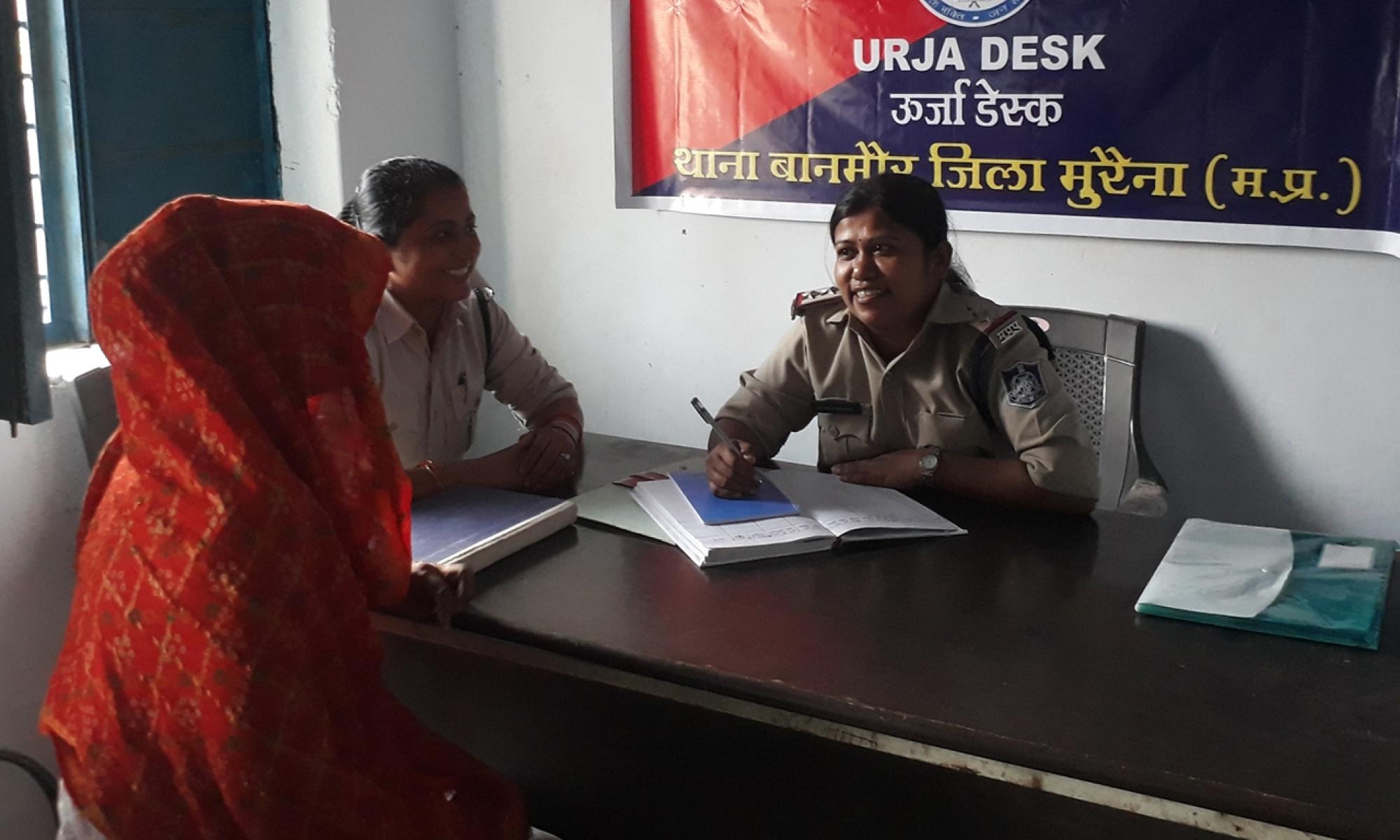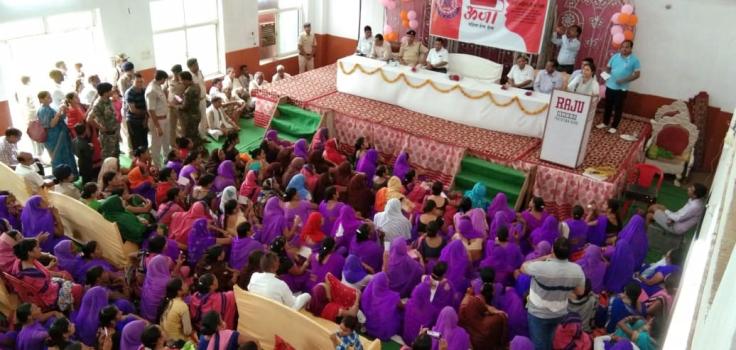
Archived Project
GENDER-SENSITIVE POLICING
Increasing women’s access to the justice system through specialized women’s help desks at police stations
Evidence shows that police reform—providing gender sensitization training to officers and introducing dedicated help desks for women at police stations—can shift police attitudes, making them more responsive to women’s security needs. In Madhya Pradesh, India, about 950 police stations across the state have introduced this approach, offering approximately 35 million women with improved access to justice.

Partner
 |
| Department of Police Government of Madhya Pradesh |
A majority of crimes against women go unrecorded, thus inhibiting women’s access to the justice system. Women often hesitate to report violence, due in part to low levels of trust in the police. Even when women do report, some police officers may be unwilling to adequately assist women, reflecting patriarchal norms that seek to “protect families” by minimizing legal cases, as well as political incentives to show lower crime rates.
Police reform is critical in addressing this crisis. From 2018 to 2020, J-PAL affiliated researchers partnered with the Department of Police, Madhya Pradesh to evaluate the impact of a program that introduced women’s help desks (WHDs) in police stations. WHDs offered a private space for women to make complaints to an officer trained on gender sensitization and case registration procedures. WHDs are also a national priority in India, with over USD 1.2 billion allocated under the Ministry of Home Affairs’ Nirbhaya Fund towards setting them up at police stations across the country.
Evidence-to-action story

Point of contact

Parikrama Chowdhry
Lead - Policy (Scale Ups), J-PAL South Asia
[email protected]
Parikrama Chowdhry leads multiple scaling interventions that have proven effective through rigorous evaluations. Her work focuses on system-change initiatives across themes of economic inclusion, crime, violence and conflict and education, particularly in South Asia.
